About the Academic Computer Centre CYFRONET
Infrastructure for users
For 50 years, CYFRONET has been at the service of the academic circles, providing information and communication services – access to the Internet, the fastest supercomputers in Poland, and the fastest supercomputer in Europe – LUMI, sharing knowledge and experience, implementing numerous Polish and international projects and endeavours included in the Polish Roadmap for Research Infrastructure.
CYFRONET is the operator of the Krakow MAN, which is used by many scientific centres and constitutes one of the key components of the Polish PIONIER network, connected with the European GÉANT network.
The Centre is also the operator of the currently fastest supercomputer in Poland – Athena – whose theoretical processing power, i.e. 7.7 PFlops, put it on the 105th and then the 113th place on the TOP500 list of the fastest supercomputers in the world, in June and November 2022 respectively. Athena’s power is based on servers with AMD EPYC and GPGPU NVIDIA A100 processors and accelerators, together with the indispensable data storage subsystem based on very fast flash memories.
Another supercomputer – Ares, with a processing power of more than 3.5 PFlops comprising a set of processing servers and a disk system with over 11 PB capacity, made it to the same list at the 290th and 323rd positions, respectively.
The third on the list of CYFRONET supercomputers is Prometheus with a processing power of 2.7 PFlops, which has been on the TOP500 lists 15 times in a row, in the 38th position at the highest, and in 2022, in the 476th place. For scientific calculations, Prometheus has been offering more than 50,000 processing cores and GPGPU processors.
The supercomputers operating at CYFRONET are characterised by a significantly high level of energy efficiency, which has been corroborated by the fact that they made it to the Green500 list of the most energy-efficient supercomputers in the world. In June 2022, Athena took the 9th place.
The CYFRONET supercomputers are used, among other things, for the needs of high-energy physics (ATLAS, LHCb, ALICE, and CMS projects), astrophysics (CTA, LOFAR), Earth sciences (EPOS), European Spallation Source (ESS), biology (WeNMR), and the humanities and social sciences (CLARIN).
The Centre manages data storage systems with a total capacity of more than 70 PB and provides cloud services and scientific software packages. CYFRONET’s resources are available via the PLGrid Portal. The users – representatives of Polish scientific and research centres – are welcome to use them for free.
A centre of data and competence
The Academic Computer Centre CYFRONET is an individual unit, established by the State Committee for Scientific Research, in the areas of expansion and use of high-performance computers and the citywide academic computer network. It is also a Competence Centre recognised by the National Centre for Research and Development in the area of distributed grid and cloud computing. The CYFRONET staff consists of specialists of multiple fields, which allows the Centre to offer services fit to face a variety of challenges as a unit that carries out the mission of providing support to the academic environment. Given the dynamic technological development, as well as the economic and social changes of recent years, the challenges abound.
Therefore, to all CYFRONET employees – both the present staff and those who were responsible for creating its departments, laboratories, sections, and teams in the past, Professor Wiatr expressed his heartfelt gratitude during his speech.
CYFRONET at the AGH University
For 24 years, CYFRONET has been an organisational unit of the AGH University of Krakow. However, initially, when the centre was first established in March 23, 1973, it was an independent budgetary unit of the Ministry of National Education. In 1992, the unit took the name of the Academic Computer Centre CYFRONET – KRAKÓW, and in 1998, Professor Ryszard Tadeusiewicz, former Rector of the AGH University, presented a project to establish a new organisational unit called the ‘Academic Computer Centre CYFRONET’. Because the State Committee for Scientific Research was unable to further fund the institution, the change was unanimously endorsed by the members of the Scientific Council of the Centre.
The Academic Computer Centre CYFRONET is on the lookout for more challenges in the coming years, related to research problems of Polish and European science. However, the experience gathered in the last 50 years creates a solid foundation upon which to build.
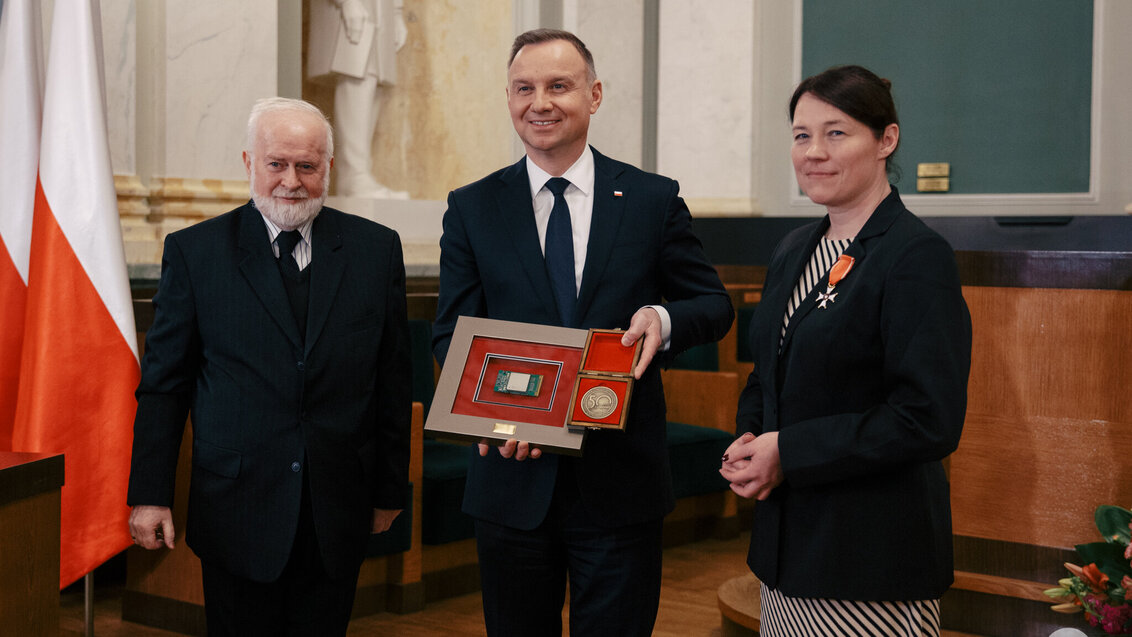
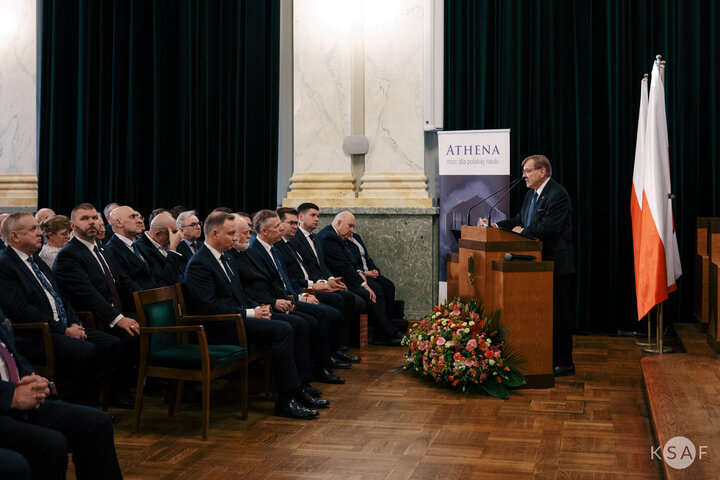
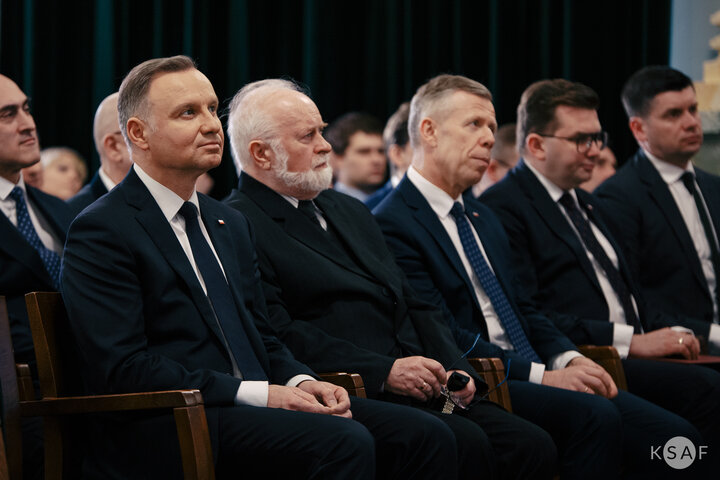
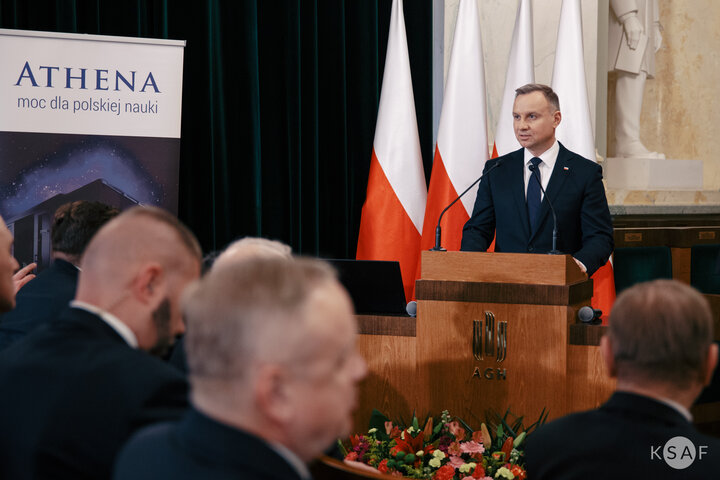
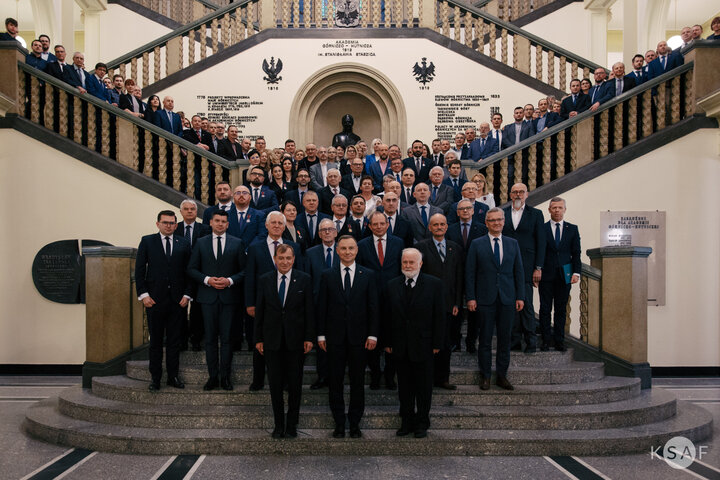
 Three AGH University student projects with KOKOS awards
Three AGH University student projects with KOKOS awards  AGH University mathematician: I look for beauty in graphs
AGH University mathematician: I look for beauty in graphs  Krakow hosts the 15th European Symposium on Computational Intelligence and Mathematics
Krakow hosts the 15th European Symposium on Computational Intelligence and Mathematics  START scholarship for two young AGH University researchers
START scholarship for two young AGH University researchers  Main Library’s Agnieszka Podrazik as a Promoter of Education about Standardization
Main Library’s Agnieszka Podrazik as a Promoter of Education about Standardization  CYFRONET Centre’s Helios third in the Green500 list
CYFRONET Centre’s Helios third in the Green500 list